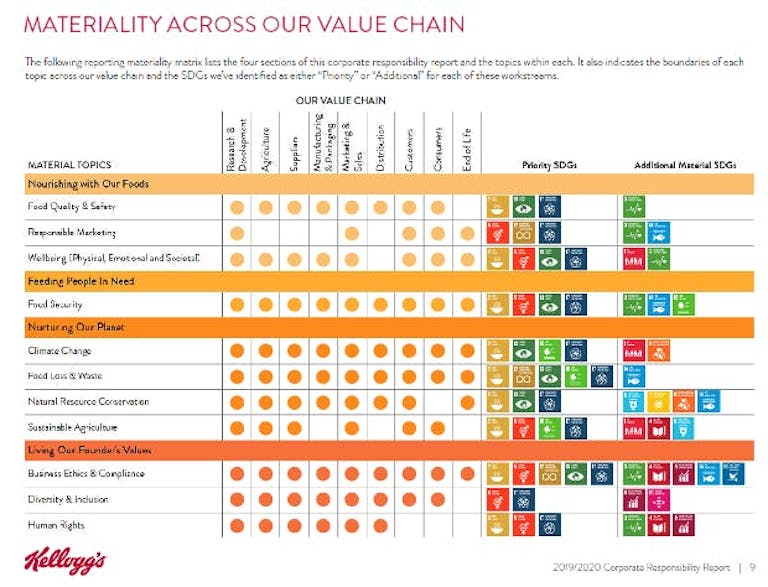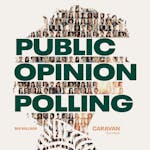Focus is Expanding to Sustainability, Social Responsibility, Diversity and Inclusion
Competitive intelligence analysis has been used for decades as a way for companies to benchmark themselves against their competitors, and more recently against adjacent sector companies and “ankle-biters[i]”. Metrics such as financial data, M&A activities, patents, product launches, etc. are typically used when performing CI analysis. However, in the current global economy, consumers are putting an emphasis on such attributes as sustainability, social responsibility and diversity & inclusion when selecting products and services.
Incorporating these metrics into a CI analysis can provide a great deal of insight and a more robust view of a competitor. There are numerous resources that can help paint a picture of how a competitor is executing on these and tell the story as to how a company is handling and tackling these issues.
Questions such as the following can be at least partially answered via in-depth research in published secondary sources:
- How does a company compare to their peers in terms of stated sustainability goals?
- Are they on the forefront of social issues; is it apparent in their messaging?
- Does their product labelling and packaging reflect “earth-friendly” certifications?
Winning Customers Through Social Responsibility / Diversity & Inclusion
Barron’s reported that almost 60% of Americans “want the companies they buy products from to have a position about issues such as racial discrimination and social justice…Roughly 50% of the survey’s respondents said they often do online research to see how a brand reacted to the social issues.”[ii] (Survey conducted June 2020)
Companies are prominently displaying their initiatives and reporting of these issues on their corporate websites. Looking, for example, at Kellogg, the company made diversity and inclusion a “key corporate initiative” over 10 years ago. Further, in 2005, they established an Office of Diversity and Inclusion.[iii] Kellogg has an entire section on diversity & inclusion on their corporate website (https://www.kelloggcompany.com/en_US/about-diversity.html); as well as additional information under the careers portion of their website. Here they note several related awards they have received.[iv] They publish Features, to share their “diversity and inclusion progress and learning.” A separate section addresses their corporate responsibility and initiatives (https://crreport.kelloggcompany.com/).
These readily obtainable insights and reports can serve as a foundation and introduction to a company’s philosophy and strategy around social consciousness. However, to get a more detailed picture of how a company is actually executing on this, digging deeper through a variety of resources is needed.
Sources such as corporate presentations and reports, print and social media, job websites, advertising messaging, product labelling, among others, can be used to develop an understanding of a competitor’s strategic approach to these social issues.
Targeted searching and analysis of social media can uncover both positive and negative initiatives and issues in these areas that may warrant further research. Combing job posting sites can provide insight into how companies are supporting their strategies through hiring practices.
Employing “outside-looking-in“ sources provides a broader view than just looking at corporate-provided insights would. Synthesizing both perspectives can build the truer story and allow for comparison across peers.
As just one example of information that can be used to compare companies, there are numerous sources that either rank or award companies for their efforts in these areas. Forbes has published an analysis of America’s Best Employers For Diversity for several years; Kellogg came in at 492 on the 2020 list. Some competitors in the food category ranked higher (General Mills at 230 and Mars at 355).[v]
Competing on Sustainability
The various source types mentioned above can be used when researching a company’s actions around sustainability as well. In addition, stated corporate sustainability goals are one way to compare and contrast a set of companies. Since 1983, KPMG has been publishing their Survey of Sustainability Reporting. The 2020 edition was a review of sustainability reporting from 5,200 companies in 52 countries and jurisdictions. KPMG found that 80% of companies worldwide now report on sustainability, with the number rising to 96% among the world’s largest 250 companies.[vi]
In 2016, the United Nations launched 17 Sustainable Development Goals (SDGs)[vii], which the organization defines as “the blueprint to achieve a better and more sustainable future for all. They address the global challenges we face, including poverty, inequality, climate change, environmental degradation, peace and justice.”[viii]
Companies of all types are selecting specific SDG’s as areas of primary focus and documenting in various ways their actions in support of the goals. KPMG’s Survey of Sustainability Reporting found that 68% of surveyed companies connect their corporate reporting to the SDGs. KPMG noted that:
- Only 14% of companies report both positive and negative contributions to the SDGs; 44% do not set business goals in relation to the SDGs.
- SDGs linked to economic growth, climate change and responsible consumption are most frequently prioritized by businesses.
- SDGS linked to protecting biodiversity are least commonly prioritized by businesses.[ix]
Here are just a few examples of company communications regarding SDG’s in the food category:
- Kellogg stated in a June 2019 release, ”Kellogg launched its next-generation Kellogg’s® Better Days global commitment, taking its corporate responsibility work and impact to the next level. By the end of 2030, Kellogg aims to drive positive change for 3 billion people by focusing on the interconnected issues of food security, climate and wellbeing. While Kellogg is committed to making significant contributions to several SDGs, this work ladders up to focus on SDG2 – Zero Hunger.”[x]
- Additionally, from Kellogg’s Better Days 2019/2020 Corporate Responsibility Report Executive Summary:

- From General Mills Global Responsibility 2020 report:
General Mills supports the United Nations (UN) Sustainable Development Goals (SDGs), a set of 17 broad goals and 169 more specific targets to drive the 2030 Agenda for Sustainable Development globally. We focus on the goals that most closely align with the company’s priority issues and areas of long-standing commitment, investment and progress[xi]

(Source: General Mills)
It can be helpful to monitor corporate presentations at events (investor and industry) to gain insight into their sustainability initiatives and strategy. For example, in Kellogg’s recent presentation at the Consumer Analyst Group of New York (CAGNY) Virtual Conference, Amy Senter (Kellogg) noted:
People today want to live their values through their purchases, and our purpose-driven brands deliver for consumers and the planet. Our portfolio and practices resonate strongly with consumers the world over. Today, this work comes to life through our Kellogg’s Better Days commitment to address the interconnected issues of well-being, hunger relief and climate resiliency, and creates better days for 3 billion people and the planet by 2030. Under this commitment, we drive progress on nourishing our foods, feeding people in need, nurturing our planet and living our founder’s values.[xii]
(Company efforts around incorporating sustainability into innovation is covered in our blog titled “Winning with Sustainable Innovation Amidst Pandemic Disruptions.”)
Use New CI Metrics to Tell a More Complete Story
Research by McKinsey (back in 2014!) found 44% of executives interviewed “mentioned business and growth opportunities as a reason to get started on sustainability”.[xiii] A more diverse and inclusive environment can help foster innovation, attract talent and improve productivity. According to Forbes, “The results, data, and studies are in, and they show that organizations that prioritize diversity and inclusion as a strategic priority do better than less diverse peers.”[xiv] All of this points to the importance of monitoring competitor activities in these areas.
Creating a targeted and customized set of metrics to monitor for a secondary research-based CI analysis can be complex. To obtain a well-rounded and neutral view of competitors, it is best, when applying secondary research methodologies, to use an extensive variety of sources and tools to provide the broadest prospective from a variety of different angles.
When strategizing with our Accelerated Intelligence clients regarding their CI/peer analysis needs, we strongly recommend incorporating insights from competitor’s sustainability, diversity & inclusion and social responsibility efforts into the profiles and monitoring research we conduct for them.
Written by Mary Ellen Epstein, Senior Directior at Big Village Insights.
[i] https://retailleader.com/rise-ankle-biters
[ii] “A Majority of Consumers Expect Brands to Take a Stand on Issues Before Purchasing, Survey Finds,” Barron’s, July 7, 2020
[iii] https://www.kelloggcompany.com/en_US/about-diversity.html
[iv] https://www.kelloggcareers.com/global/diversity.html
[v] https://www.forbes.com/best-employers-diversity/#8764b599b9e9
[vi] “The time has come The KPMG Survey of Sustainability Reporting 2020 EXECUTIVE SUMMARY KPMG IMPACT December 2020,” at home.kpmg/sustainabilityreporting
[vii] https://globalreportinginitiative.medium.com/corporate-reporting-on-the-sdgs-what-are-the-challenges-and-opportunities-13cca805723d
[viii] https://www.un.org/sustainabledevelopment/sustainable-development-goals/
[ix] “The time has come The KPMG Survey of Sustainability Reporting 2020 EXECUTIVE SUMMARY KPMG IMPACT December 2020,” at home.kpmg/sustainabilityreporting
[x] https://newsroom.kelloggcompany.com/2019-06-04-Every-day-is-an-opportunity-to-scale-up-partnerships-for-healthy-people-and-planet
[xi] “ Global Responsibility 2020,” General Mills
[xii] Kellogg Co at Consumer Analyst Group of New York (CAGNY) Virtual Conference Wed Feb 17 2021 Conference Transcript; Alphasense
[xiii] “Profits with purpose: How organizing for sustainability can benefit the bottom line,” McKinsey 2014
[xiv] “Diversity Confirmed To Boost Innovation And Financial Results,” Forbes, January 15, 2020










